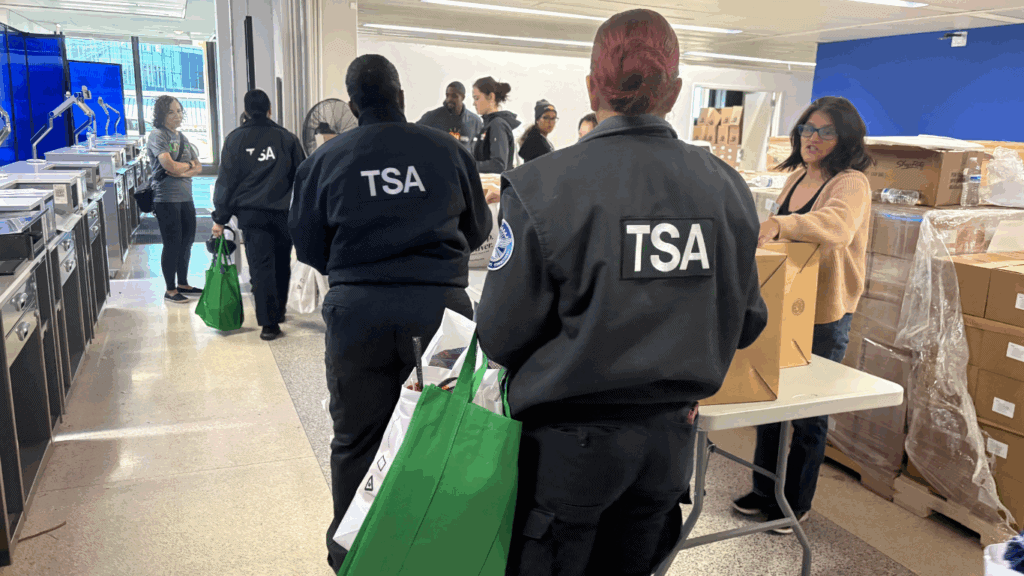As of Wednesday, October 1, the federal government is officially shut down. Lawmakers in Congress were unable to reach an agreement on either new legislation to fund the government or a temporary extension of current funding, known as a continuing resolution. Without action by the September 30 deadline, the government has now entered a shutdown, halting many federal operations and leaving critical programs and services in limbo.
What Does the Shutdown Mean for Food Banks?
When the federal government shuts down, the ripple effects are felt far beyond Washington, D.C. — and food banks are often among the first to see the impact. About 23,000 civilian federal employees across the state are facing furloughs or missed paychecks — including essential workers like air traffic controllers, TSA agents, and Social Security staff. Having missed their paychecks, they may turn to food banks and pantries for help — perhaps for the very first time in their lives. They could be forced to make impossible choices, like deciding between paying their rent or utilities and buying food.
Food banks are the first, and potentially only, option for assistance for many affected individuals and families. This shutdown follows significant cuts to government programs and services like SNAP earlier this year that support people across the country, including our neighbors right here in New Jersey.
November SNAP Benefits Distributed
CFBNJ is relieved that November SNAP benefits were issued on November 7 to 850,000 New Jerseyans who rely on this critical program, and we applaud the state for its quick action and distribution of funds. However, food pantries across the state are still seeing record high demand.
In this time of unprecedented uncertainty, the FoodBank will continue to move forward with our existing emergency plans, and we still need the public’s support to help ensure that no family goes hungry during this difficult time. We are actively coordinating large-scale food distributions for federal workers and SNAP recipients across the 11 counties we directly serve to ensure that everyone in our communities has access to nutritious food.
We are expecting to spend an extra $3–$5 million in November alone to meet the surge in demand — providing an additional 3 million pounds of food through these emergency distributions and increased allocations to our network of partner pantries. We are working closely with our pantry partners, government officials, and others on this coordinated response to help alleviate as much of the increased need as possible.
How You Can Help
Nearly 1.1 million New Jerseyans are food insecure. The longer the shutdown lasts, the more need will increase. CFBNJ and our partners are here to help our neighbors during this period of upheaval, but we can’t do it without your support. If you can, please make an urgent donation to help CFBNJ meet the increased demand.
